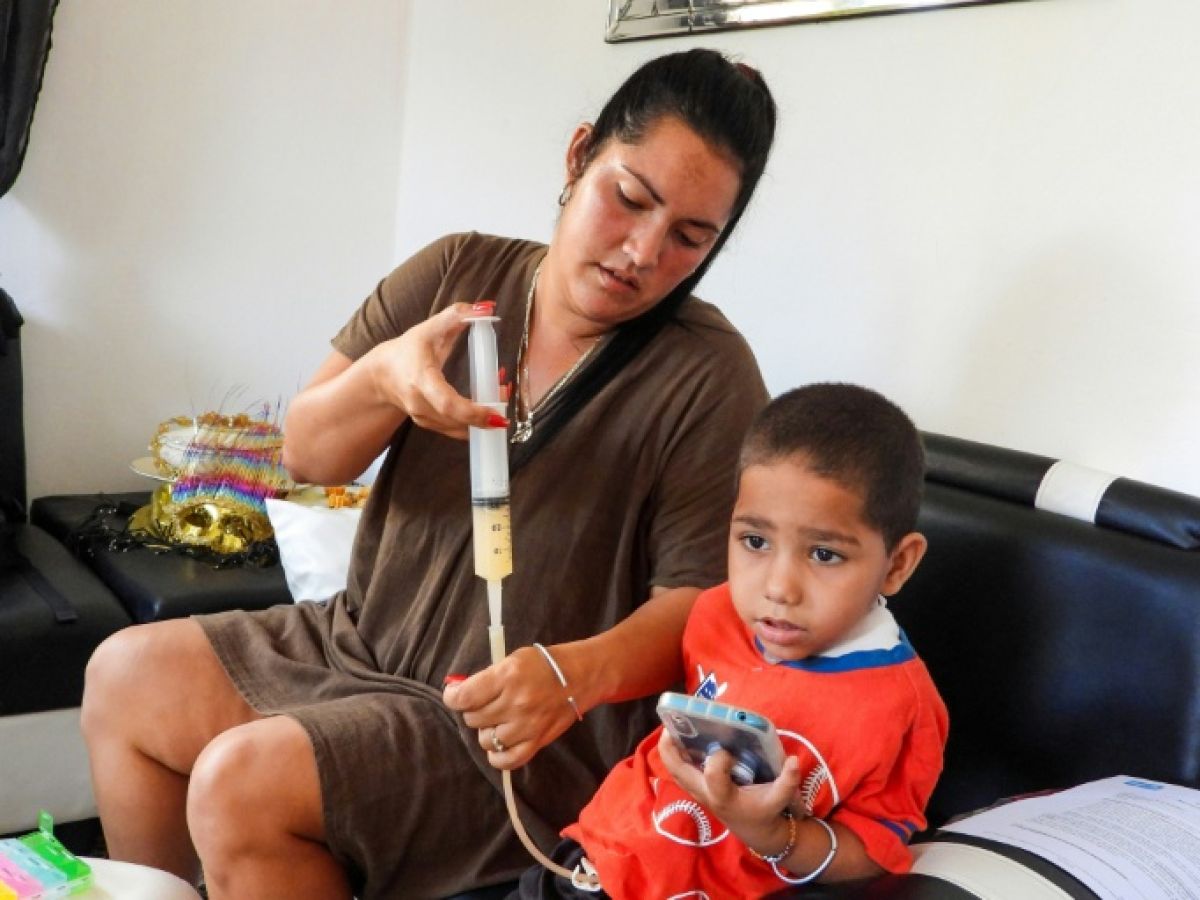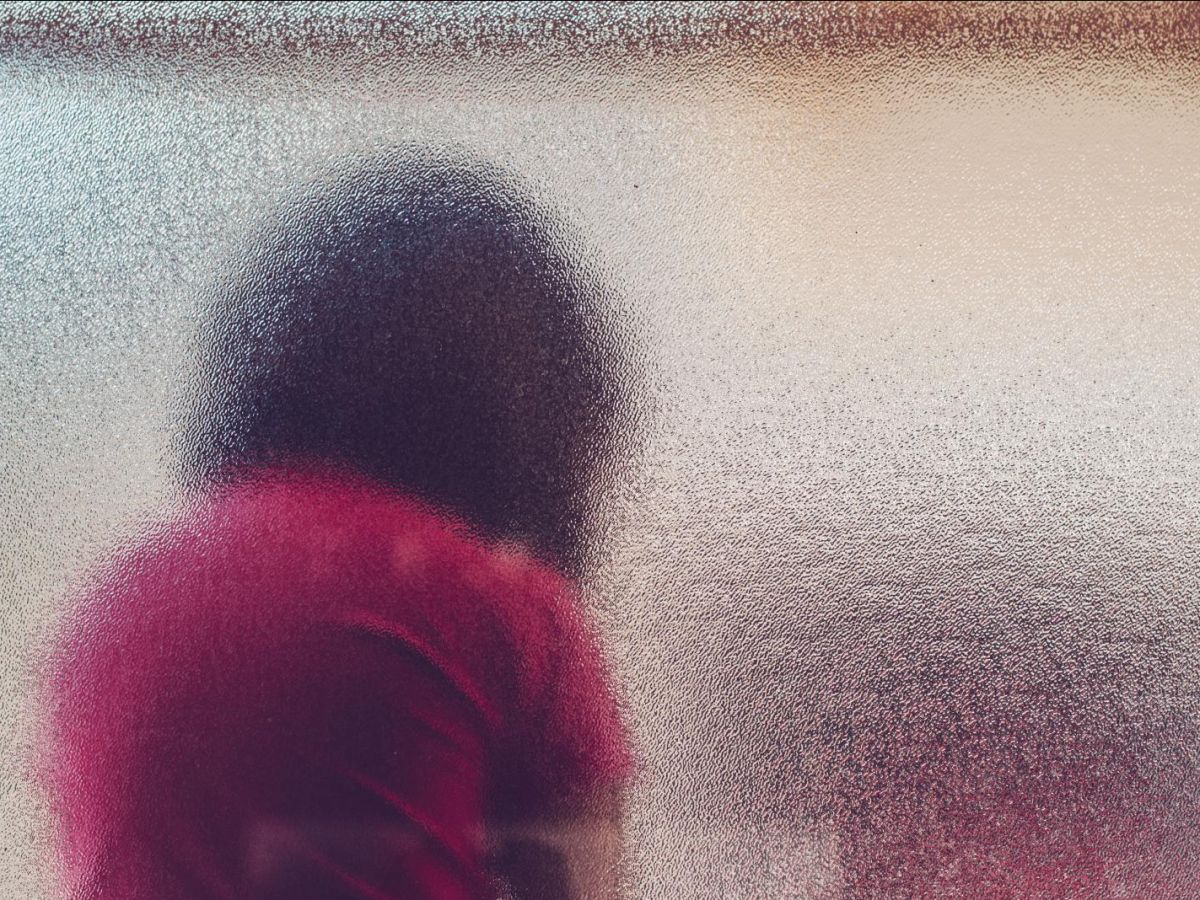Waiting for an esophageal transplant for her four-year-old son, Cuban Jessica Rodriguez struggles every day to find the treatment and medical supplies he desperately needs in a country where nearly two-thirds of essential medicines are in short supply.
"I'm constantly worried about not having what he might need," the 27-year-old mother told AFP from her home in Santa Fe, a neighborhood in western Havana.
Beside him, little Luis Angelo watches a cartoon. Born with an esophageal malformation, he survives thanks to a tracheotomy and feeds through the stomach. In addition to being asthmatic and allergic, the child suffers from mild heart disease and epileptic seizures.
In a country reeling from the effects of the tightening of the US embargo, plunged into its worst economic crisis in more than three decades – with shortages of all kinds and galloping inflation – obtaining the seven medications and medical equipment that Luis Angelo needs is a daily struggle for his family.
"The absence of medication, the lack of suction catheters, or the inability to change a catheter can harm their health and lead to serious illnesses that could cost them their life," Rodriguez said.

Like her, many Cubans live in fear of not being able to obtain essential medicines.
"More than 70% of essential medicines are affected" by the shortage, President Miguel Diaz-Canel recently acknowledged in a television interview.
In recent years, Cuba has been unable to import the raw materials needed to produce the majority of the 650 medicines that make up its list of essential medicines locally.
– Desperately empty shelves –
On the communist island of 9.7 million people, known for providing highly qualified doctors and a thriving pharmaceutical industry, pharmacy shelves are empty and hospitals lack basic medical supplies such as compresses, sutures, disinfectants and oxygen.

"There are days when there is nothing," a doctor working at a hospital in the capital told AFP on condition of anonymity.
Chronically ill people like Luis Angelo have a card to buy medication at subsidized prices, but sometimes none are available for months, says his mother, who is often forced to buy them on the black market at exorbitant prices.
Physiotherapist Jessica Rodriguez stopped working to care for her son and receives state aid of 1,400 pesos per month, less than $12 at the official rate. The little boy's father is self-employed.
Parents regularly pay between 350 and 450 pesos (about 3 or 4 dollars) for a pack of pills purchased outside of public pharmacies, which are the only ones authorized to distribute medication.
A high price given that the average monthly salary is 6,500 pesos, or $54 at the official rate, and $17 on the informal market.

Faced with the shortage, the communist government has allowed people to bring back tax-free medicines from abroad since 2021, for non-commercial use.
Many of the drugs brought into the country through this route feed a thriving informal market, operating through WhatsApp groups and websites and preying on the desperation of residents.
– Mutual aid –
Several initiatives based on mutual aid have also flourished.
On social media, a group is offering free medication or food in exchange. Sophi left a message: she's looking for dorzolamide, a treatment for ocular hypertension, for her 86-year-old grandmother.

Projects like Palomas have also emerged. The platform collects medications from individuals, "leftover treatments or medications brought back from abroad," explains its general coordinator, Sergio Cabrera.
She posts daily on various online messaging groups about available and sought-after products. Palomas claims to have successfully distributed free medicine to more than 179,000 Cubans since its founding in Havana in 2021.
"Thanks to this project, today I was able to obtain medication for my diabetic mother, which was unavailable nationally," a grateful Ibis Montalban told AFP.
Witnessing the distress of families faced with the dire shortage of medicines, Mr. Cabrera explains that "here, many people cry." Palomas offers them at least a little hope.

